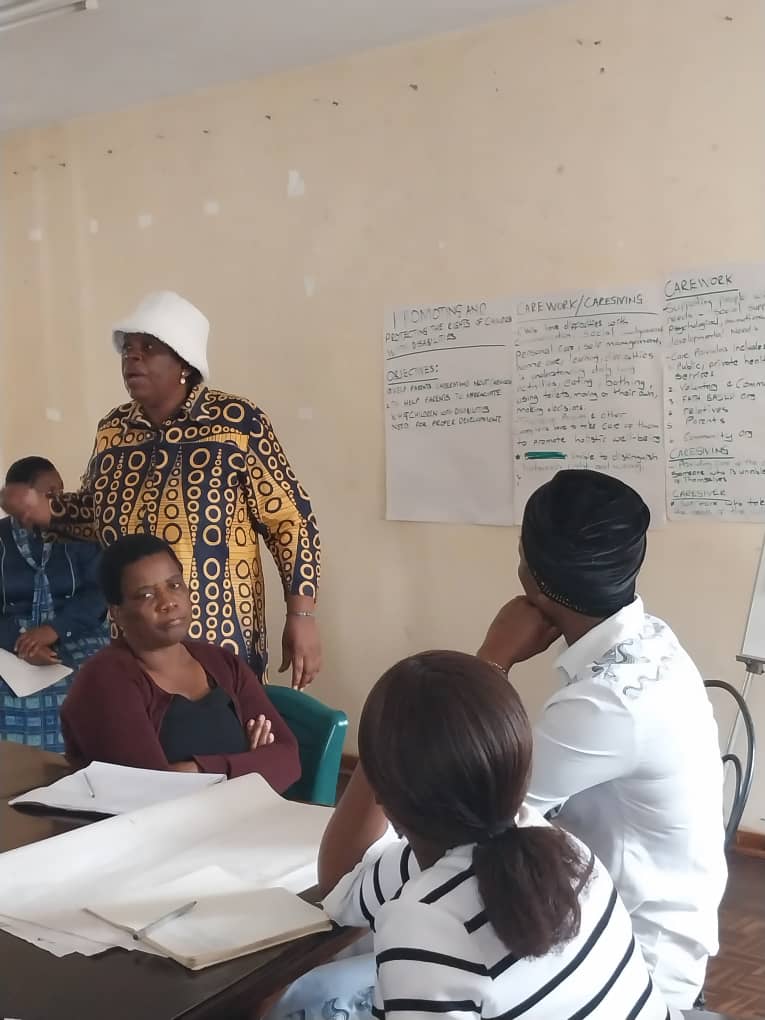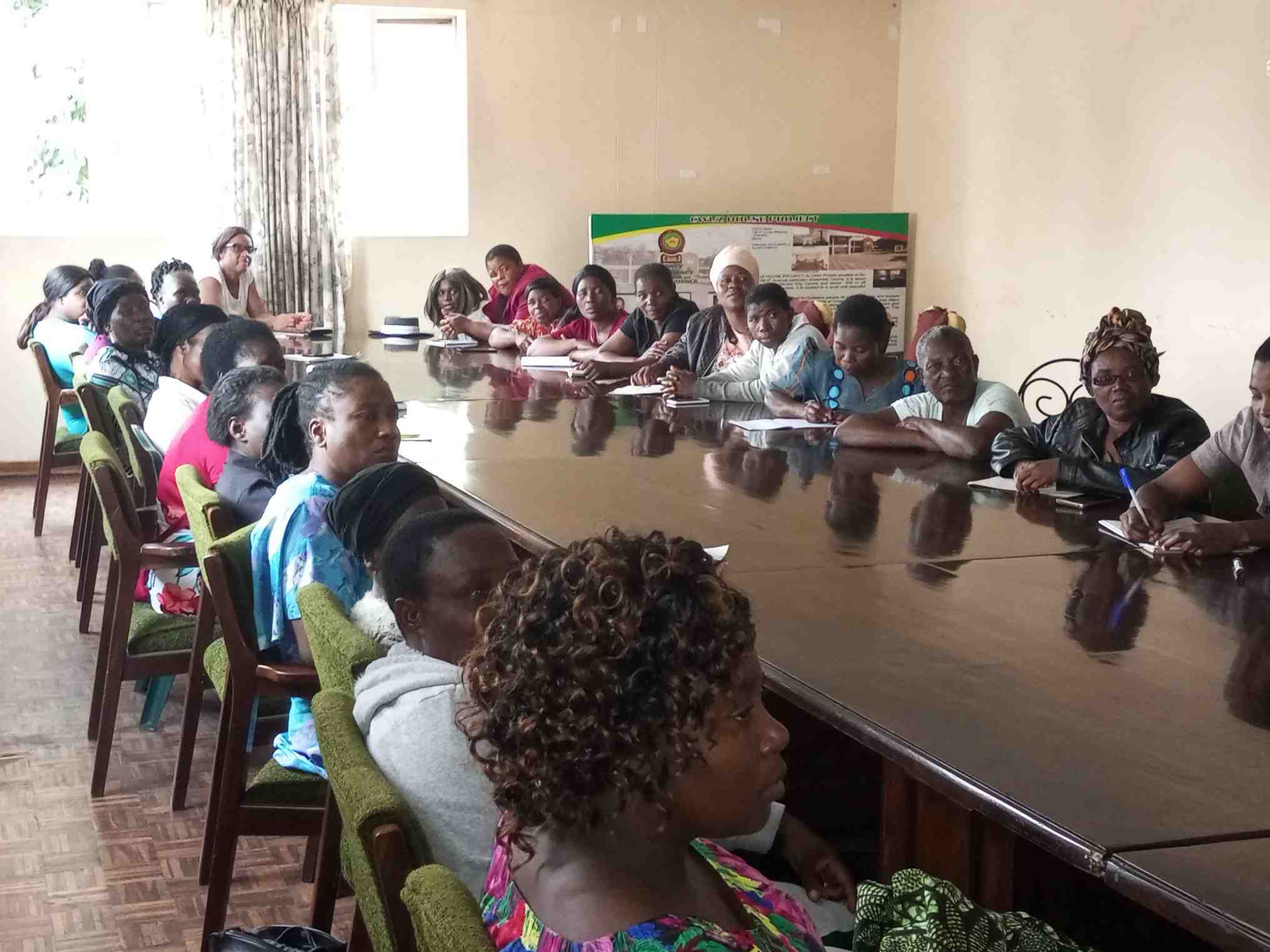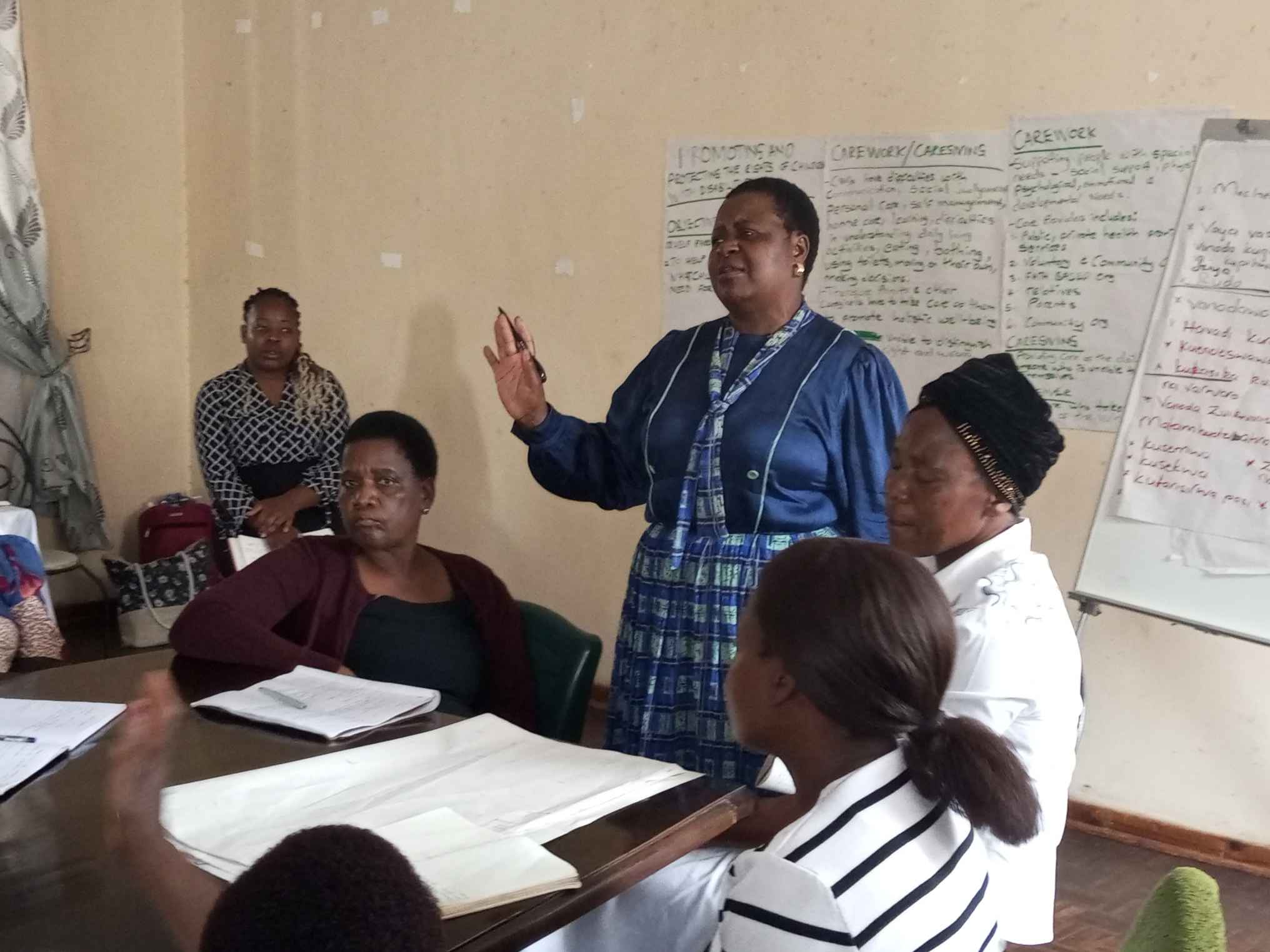|
Getting your Trinity Audio player ready...
|
Zimbabwe Parents of Handicapped Children Association (ZPHCA) is running the project “Promoting and Protecting the Rights of Children with Disabilities” with a view to helping parents to understand care work and appreciate what children with disabilities (CWDs) need for proper development.
Addressing participants at a workshop on caregiving in Waterfalls in Harare yesterday, Theresa Makwara, the ZPHCA National Coordinator said CWDs have difficulties with communication, social judgment, personal care, self-management, and home care among other challenges.

“In addition to the challenges cited above, CWDs have difficulties in understanding daily living activities, eating, bathing, using toilets, moving on their own, and making decisions. They are also unable to distinguish between right and wrong. It is, therefore, incumbent upon parents and other caregivers to take care of them to promote their holistic well-being,” Makwara said.
Trissure Chizanga, a grassroots women leader and expert on disability who was also a facilitator at the workshop said care work involves supporting people with special needs.
“Caregivers give social support for the physical, psychological, emotional, and development needs of CWDs. Care providers include public and private healthcare providers, voluntary, and community organisations, faith-based organisations, relatives, parents, siblings, and the community at large,” Chizanga said.
The workshop comes after realisation that most members of ZPHCA are women who have suffered discrimination, isolation, ridicule and at times divorced by their husbands who fail to accept the disability of the child born in their union.
There are a few cases of mothers who have rejected their children and left their children and their husbands. However, the majority of cases are those of mothers who continue to strive to support and provide basic needs for their children with disabilities under conditions that are not favorable to them.
Mothers of children with disabilities in ZPHCA are grassroots women who lack empowerment and are not gainfully employed as they are preoccupied with the disability of their children.

Mothers of children with disabilities continue to care for their children with little or no support from their families and the community. Caring for a child with a disability is full-time work, 24 hours a day with no time off, holidays, or breaks in between.
Myths and misconceptions about disability still exist which hinder support from family and community. Due to climate change and the harsh economic conditions whose effects were increased by the covid19 pandemic, mothers of children with disabilities are finding it more and more challenging to provide basic needs for their children. This includes access to health services, sanitary and hygiene ware, foodstuffs, and psycho-social well-being. Mothers of children with disabilities are having to care for their children with limited or no resources altogether.
Mothers of children with disabilities also have the burden of caring for ailing family members in the event that they fall ill. It is the culture in Zimbabwe for a daughter-in-law to care for her in-laws when they are not well. This increases the burden for the already burdened carer. In addition to in-laws, they also care for ailing members of their own immediate and extended family as expected in our culture. This is not easy for the carers who already have to look after their child, are the source of livelihood, and carry out the expected daily chores.
Due to the COVID-19 pandemic, livelihood projects were affected. That impacted negatively on families of children with disabilities.
Overall, there is a feeling that the Government has failed to recognize caregivers. There are community cadres (Village Health Workers) who are aligned with the Ministry of Health and Child Care and are responsible for providing community health services.
Failure to remunerate these community cadres has resulted in them failing to offer health services to the community. Mothers of children with disabilities have taken over this responsibility without getting any support. The covid19 pandemic increased the need for caregivers in communities as most people fell ill or parents/ guardians were taken to quarantine centers leaving young children in need of care.
It then becomes imperative for the carer to have support systems for their psychological well-being. Unfortunately, such structures do not exist for grassroots women. Where they are available it is usually out of the reach of mothers of children with disabilities as they can not afford the services.
With the lack of family and community support, failure to access basic services, discrimination and isolation, and being overburdened with care work, the carer is at risk of a mental breakdown and suffering from depression. Thus, the concept of parent-to-parent support-initiated b ZPHCA continues to offer a lifeline for caregivers who would otherwise have no forum where they can share ideas and offer each other moral support.
Mothers of children with disabilities are at times themselves affected or infected by HIV. This is an added burden for the mother who has to deal with a disability as well as HIV. At times the caregiver is also in need of constant care and is on anti-retroviral therapy which can have side effects. This can put a strain on the already over-burdened caregiver.
If not infected, the caregiver can be affected, and a family member or community member infected may be in need of constant care which puts an added burden on caregivers.
The challenges faced by caregivers become overwhelming when they are faced with financial constraints when they have to perform caregiving work without any protective clothing; and when they become ill themselves and there is no one to take care of them or to assist them.
Thus, there is a need for support from the family, community, civil society, and the government. Allocation of resources in terms of allowances for caregivers, provision of hygiene kits as well as awareness raising to dispel myths and misconceptions on disability issues in the communities is of utmost importance.






